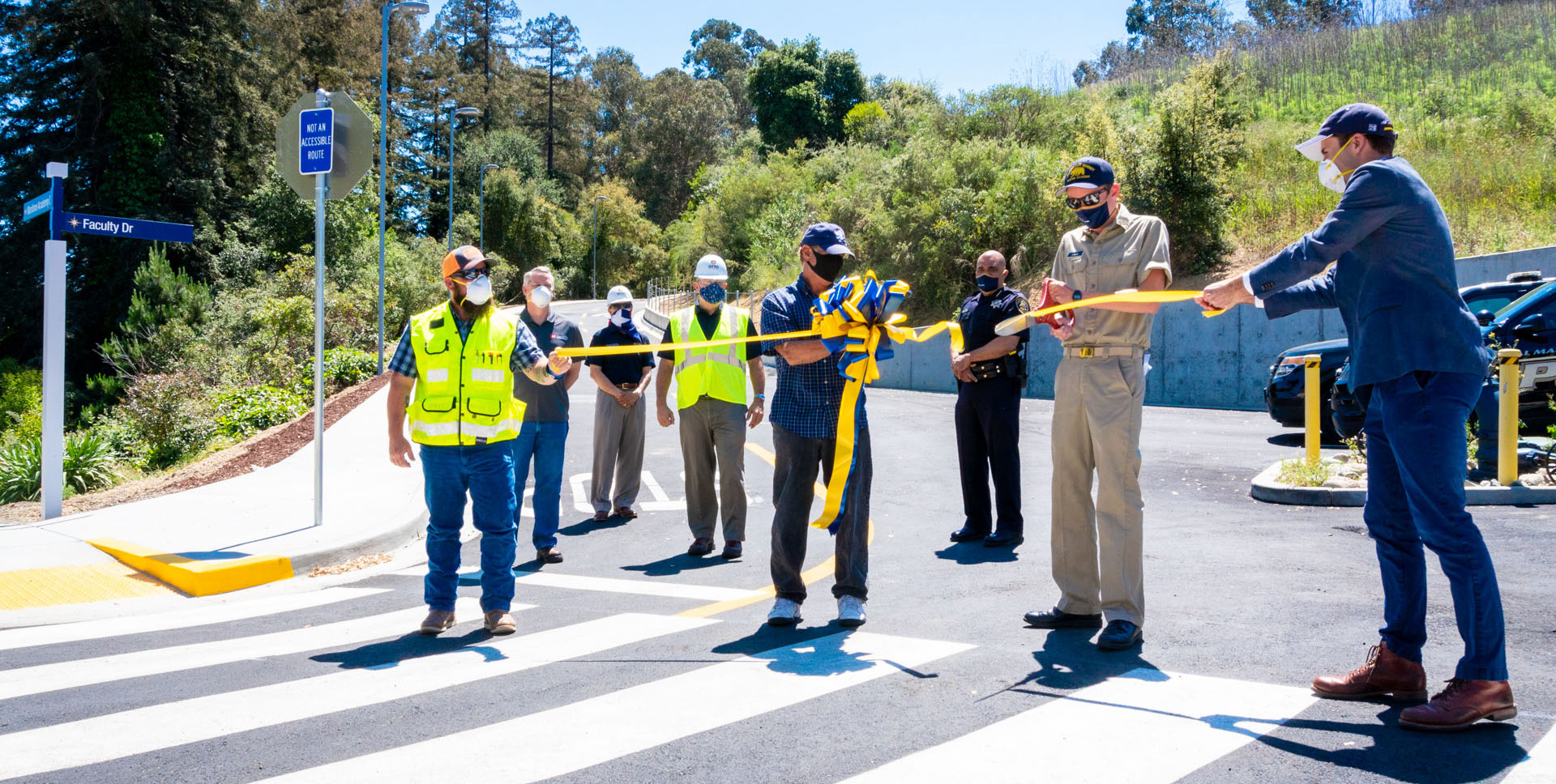Student Financial Aid
Fund your future
Start at studentaid.gov and fafsa.gov or the California Student Aid Commission at csac.ca.gov.

Ribbon cutting ceremony for the re-opening of Faculty Drive.
Types of aid
Pell Grants are federally funded, need-based awards available to students pursuing their first undergraduate degree. Grants are awarded on a sliding scale based on a student's expected family contribution from the FAFSA and enrollment. Pell Grants are awarded assuming full-time enrollment. The Pell Grant is only available up to six years based on enrollment. The award may be adjusted according to actual enrollment at the Census deadline for the term.
- Full-time: 12 or more units
- Three-quarters-time: 9 to 11.9 units
- Half-time: 6 to 8.99 units
- Quarter-time: 3 to 5.99 units
Beginning with the 2018-2019 award year, a Pell-eligible student whose parent/guardian died in the line of duty while performing as a public safety officer is eligible to receive a maximum Pell Grant for the award year for which the determination of eligibility is made. All Title IV aid awarded to such eligible students must be based on a calculated Estimated Family Contribution (EFC) of zero. Download the form to apply.
Provides need-based awards to cover a portion of the California State University Tuition Fee for eligible undergraduate students who are California residents or are otherwise determined as eligible. System-wide, the priority is to award a SUG at least equal to the amount of the State Tuition Fee of $5,742 to eligible, first-time undergraduate students.
In order for students to be eligible for SUG awards, they must meet the following:
- Students must be enrolled at least half-time
- Students must not have accumulated more than 125% units earned in their CSU undergraduate careers
- Students pursuing a second bachelor's degree are not SUG eligible (the CSU will only fund the first degree)
The Middle Class Scholarship is a grant to help undergraduate California resident students with family incomes up to $217,000 and family assets up to $217,000. Students must file the FAFSA or CADAA by March 2. The Cal Grant program is administered by the California Student Aid Commission. Visit www.csac.ca.gov for more information.
|
|
|||
| On Campus | Off Campus | With Parents or Relatives | |
| Tuition**** | $5,742 | $5,742 | $5,742 |
| Campus Fees* | $2,028 | $2,028 | $2,028 |
| Housing & Food | $13,976 | $13,852 | $9,664 |
| Medical Insurance** | $1,570 | $1,570 | $1,570 |
| Books, Supplies, Course Materials, Equipment | $1,032 | $1,032 | $1,032 |
| Transportation | $1,106 | $1,764 | $1,610 |
| Personal/Misc | $1,880 | $2,602 | $2,398 |
| Estimated Loan Fees*** | $58 | $58 | $58 |
| Estimated Uniform Expenses | $2,440 | $2,440 | $2,440 |
| Orientation Fee | $385 | $385 | $385 |
| Total | $30,217 |
$31,473 |
$26,927 |
- Western Undergraduate Exchange Tuition $8,614*
- Non-Resident Tuition $20,597*
- This is does not include Summer Tuition and Fees
- The figure listed above assumes full time enrollment (7 or more units).
- Engineering and marine transportation majors can expect approximately 32 to 36 units per academic year (fall and spring semesters).
- Business and International Safety and Security majors can expect approximately 30 units per academic year (fall and spring semesters).
- Schedule of fees
- $14 Health facility
- $30 Port Pass (campus ID)
- $130 Instructional related activity
- $210 Associated student body
- $740 Health services
The costs associated with TSGB and IE are not factored into the standard budget. Students can estimate to spend between $5,800 - $6,500. Financial aid may be available for qualifying students to help with the costs associated with enrollment in those programs, and summer financial aid awarding will be done after students register for summer classes.